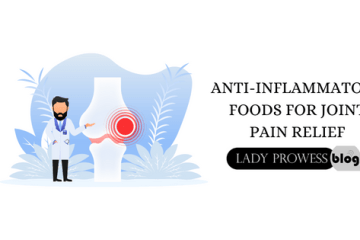Promoting healthy growth and development
Foster healthy growth and development in individuals by exploring expert tips and practices. From balanced nutrition and physical activity to cognitive stimulation, discover ways to support lifelong well-being for a vibrant and fulfilling life.
For your children to grow healthy and be physically fit, they need to receive nurturing care. Like adequate nutrition and good health, feel safe and secure, and have opportunities for learning starting from birth.
As your child ages, many different variables can affect his or her growth and development. Some of these variables can be out of your control, but many of them are within your capacity to help your child mature in the healthiest way possible. The way parents and other caregivers nurture children in the early years of their lives plays a major role in promoting healthy growth and development.
Read More: Foods for promoting gut health & alleviating digestive issues.
Exclusive breastfeeding, immunization, and timely care during illness all contribute to a child’s healthy growth and development. Clean air, water, sanitation, and safe places for play and recreation are likewise important for young children to explore and learn. Babies need affection and stimulation to develop emotionally and intellectually; therefore, parents who provide a smiling face, frequent amiable speech, physical contact, and love do a great job supporting their baby’s development.
Types Of Growth And Development
There are different ways of promoting healthy growth and development. Some of them are outlined below.
- Gross motor growth and development are physical skills that require whole-body movement and involve the body’s large muscles to perform everyday functions such as standing, walking, running, jumping, and sitting upright.
- Fine motor growth and development This kind of development is achieved when the child has learned to use his smaller muscles (muscles in the hand, finger, and wrist). It is the gradual mastery of the precise and accurate use of small muscles to grasp and manipulate small objects.
- Social growth and development are about improving the well-being of every child in society so they can reach their full potential. It helps them to be intellectually and physically fit, and the experiences will help the child make friends and get along with others. Social development is built on self-confidence, cooperation, and trust.
- Intellectual growth and development have to do with how the child’s mind is organized; it is the ability to think creatively, pay attention, solve problems, and develop keen judgment, along with a continual readiness to learn. It is a lifelong process to develop a child.
- Emotional growth and development help a child increase self-esteem; it involves developing a full range of emotions, such as moving from sad to happy to angry, and dealing with them appropriately. Emotional development brings out other deeper emotional qualities such as resiliency, empathy, sympathy, caring, and the ability to rise to life’s challenges.
How To Promote Healthy Growth And Development
As parents or caregivers, it is very important to understand that several factors contribute to promoting a child’s healthy growth and development.
Nutrition
Children have specific nutritional needs during their early years. As they continue to grow, food plays an incredibly important part in their lives. Therefore, a major part of a child’s growth and development depends on the food they eat. In order for their bodies to properly develop, they need to eat a balanced diet made up of fruits, vegetables, lean proteins, and grains. Also, ensure they get the vitamins and minerals they need because It helps prevent obesity and limits the risk of developing other chronic conditions later in life.
Exercise
This is an integral part of how children’s bodies mature and develop. It helps to strengthen their bones and muscles; it helps to boost their immune systems to fight off any illnesses or diseases; it reduces anxiety and depression; it helps to control weight; it helps your children to be physically fit; and it limits the risk of developing other health challenges. Engaging your children in 60 minutes of moderate exercise daily will positively affect how they perform in school.
Socialization
Relating with other people is a crucial part of a child’s development because they learn and understand how to communicate with and interact with other people around them. These experiences will help them pick up some norms, values, beliefs, and behaviors. If your children do not spend time with their peers early, it is possible that they may not develop certain social skills that they will need throughout their lives. One of the ways to encourage socialization is to allow them to participate in every school activity, like sports, extracurricular classes or lessons, camping, and other after-school programs.
Conclusion
The best way to promote optimal development in a child is to approach these methods with flexibility, keeping In mind the individual child’s age, temperament, and learning style. A child is more likely to be physically, emotionally, or intellectually healthy if they have capable parents or caregivers to nurture them using appropriate stimulation and positive parenting skills in safe and diverse environments.



0 Comments